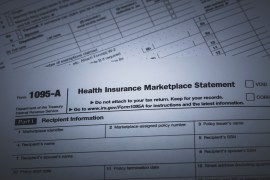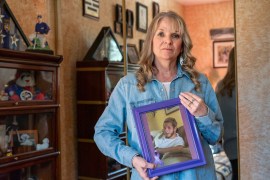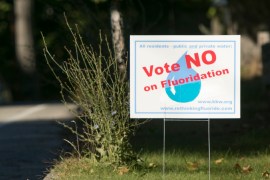A measles outbreak in a vaccination-wary North Texas megachurch and soaring rates of whooping cough across the state are drawing renewed calls for immunization legislation, which some lawmakers and medical professionals argue would help the state prevent public health crises.
“Sometimes we as a society are not going to be convinced of something that makes sense unless we experience a loss,” said Dr. Jason Terk, a pediatrician who serves on the Texas Medical Association’s council on legislation.
For at least a decade, the association has called on lawmakers to change the consent process for the state’s immunization registry, ImmTrac, to opt-out from opt-in to encourage retention of more records, reduce operating costs and protect more Texans against preventable diseases.
But conservative Republicans have consistently rejected the legislation, saying that it does not adequately protect patients’ privacy or liberty.
ImmTrac should remain a consent-based system, said state Rep. Stephanie Klick, R-Fort Worth, who voted against the legislation in this year’s session, because the state is handling patients’ private medical records.
“That way if something were to happen, they might have some clue that there had been a compromise to their privacy,” she said.
Although 95 percent of Texans informed of the registry choose to participate, many do not know it exists, Terk said.
The MMR vaccine has nearly eradicated measles in the United States, but a persistent myth linking the vaccine to autism has led some communities to resist vaccination. For example, Texas has seen a rise over the last five years — to 0.57 percent from 0.23 percent — in parents seeking exemptions for children from immunizations required to attend public school.
In Tarrant County, an unvaccinated man contracted measles abroad and spread the disease to 20 people at Eagle Mountain International Church who had not been vaccinated or had not received a second dose of the MMR vaccine, as recommended. A senior pastor, Terri Copeland Pearsons, has voiced concerns about vaccines. (On its website, the church insists that it is not “anti-vaccination.”)
The Department of State Health Services also issued a health alert this month to promote whooping cough vaccinations. As the effectiveness of that vaccine wanes over time, outbreaks occur every few years when a population becomes vulnerable again. There have been 2,000 diagnosed cases of whooping cough so far this year in Texas, and two infants too young to be vaccinated have died.
“This is extremely concerning,” Dr. Lisa Cornelius, the department’s infectious diseases medical officer, said in a statement. “If cases continue to be diagnosed at the current rate, we will see the most Texas cases since the 1950s.”
Russell Jones, chief epidemiologist at the Tarrant County health department, said his first response to reports of a vaccine-preventable disease would be to check ImmTrac to determine whether the person was properly immunized.
If vaccination records are robust in a particular community, “you get a sense of how well your immunization programs are doing,” he said, adding, “It’s going to take a while longer before it’s really complete and can tell us a lot.”






